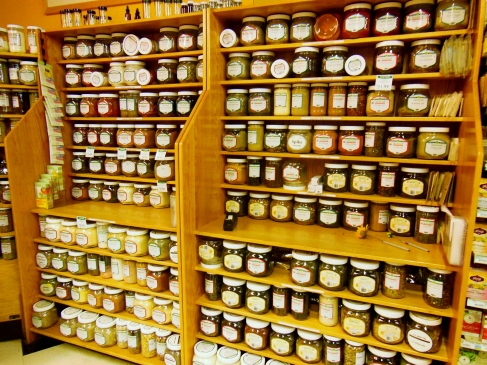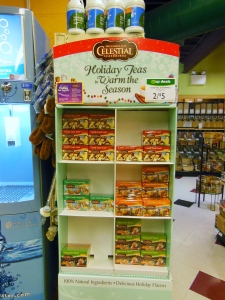HONORS 135- Section 005 Fall 2013
Beyond Sustainability: The Methodology and Practices of Permaculture
Tuesday 2:30 pm to 4:00 pm 210 Tappan Hall
Instructor: Madeline C. Dunn
Email: maddunn@umich.edu
Office hours are by appointment
Goals:
This class aims to engage you all in the lifestyle surrounding permaculture principles and ethics. Permaculture stands for permanent-agriculture and is a design science that uses patterns found in nature to create zero waste, regenerative systems. We will spend some time analyzing permaculture design within food and social systems. However, I am most interested in you discovering how to use the 12 principles and 3 ethics (earth care, people care, and fair share) to enhance your daily lives and inspire the use of holistic and systems thinking in your career and senior thesis planning. Permaculture as a design science can also be used to regenerate happiness and well-being within societies and within our minds. Through the outside of class assignments, you will gain skills in interviewing, utilization of multi-media, and prepare yourselves for the construction of your own Honors Thesis project: a task in which you will all be embarking on during your time here at the University of Michigan and possibly beyond.
Classroom Environment:
Respect yourselves, your classmates, and me by completing the required readings and actively participating in the appropriate amount of outside of class activities. This will inherently enhance both class discussion as well as the quality of the online class blog site which I am using to document the work completed in this section of Honors 135. Class may not always extend through the entire 1.5 hours of time allocated towards this section. This longer class block is intended to give us time to meet in the Nichols Arboretum or Matthaei Botanical Gardens if necessary. If we finish discussion before our time is up, you will be free to leave early.
Attendance:
Attendance is required. If you miss a day of class, you can make it up by completing one extra outside of class activity listed on the list, or coming up with one of your own, and blogging about.
Required Texts:
Permaculture: Principles and Pathways Beyond Sustainability by David Holmgren
The Permaculture Activist Magazine- As a class, we have a diverse set of copies of this publication to share throughout the semester. Students will circulate them between each other at the beginning of each class. Remember to take personal notes and keep track of the articles that inspire you as well as articles that you disagree with for our discussion on the last day of class. This inherently teaches sustainable and sharable community development within the classroom environment. See the CTools resources folder labeled “Permaculture Activist Magazines” for a complete list of our class copies.
Assignments:
This class is counted as pass or fail credit therefore your engagement with the material will be based on blog posts and attentiveness during class. Your engagement with the speakers will be measured based on the quality of questions that you come prepared with to class.
Required outside of class activities:
Below is a list of required outside of class activities you must all complete by the end of the year. Feel free to attend your four required outside of class field trips with a group, a partner, or alone. You are also required to choose two options from the secondary list found on CTools in the resources folder titled “Outside of Class Activities”, in addition to the four below. Please see CTools for specific instructions/directions on each outside of class activity.
1) Go to the farmers market in Kerrytown and interview at least two stand owners in order to create a photojournalism assignment that you will post to the blog no later than October 1st 2013.
2) Conduct Holmgren’s self-audit no later than October 15th 2013. We will discuss these in class. There is no need to post your self-audits to the blog and you are not required to send them to me. I want you to be honest with yourself and have the ability to come back and revise this on your own time.
3) Submit an opinion piece on a topic we have covered this semester to a local, regional, national, or even global publication and post it to the blog no later than October 29th 2013.
4) Keep a waste journal for three days this semester and blog about the experience no later than November 5th 2013 (all in one post please so remember to take long-hand notes during the exercise). Make sure that at least one day is a weekend and one is a week day. This can include taking photos of the waste, creating an art project with the waste and documenting it, or simply recording the waste and journaling about the experience. You will first want to create a definition of waste. See this example of a semester long waste journal that I kept: http://mywastejournal.wordpress.com/
Blogging:
https://f2013honors135005.wordpress.com/
Everyone is required to personally post to our class blog. Blogging can be done in pairs of two if you wish to embark on a point/counterpoint style piece. Each week, you are required to upload at least one post to the blog. These posts are separate from the brief paragraphs that you are required to post on your outside of class activities. Blog posts can consist of the following: your opinion of a lecture on campus or in Ann Arbor and how it relates to permaculture, commentary on the content our guest speaker (if there was one) of the week shared with the class and how the topic relates to permaculture principles and ethics, or on a theme/pattern you discovered within the print material for this course. There may be weeks where I give you a theme to blog about but overall you have autonomy within your posts and posting style. Blogging can be in the form of a video, photo journalism assignment, written text- poem, rap, short essay, or any other creative format you come up with.
9/10/13 Week 1: Course overview/Get to know each other
Before Class:
Please complete the Planet Blue online ambassador training program: http://sustainability.umich.edu/pba/planet-blue-ambassadors
In Class:
Go over the effectiveness of the Planet Blue Online Ambassador Training and any surprises/concerns you have with it.
Interview each other in preparation for required Ann Arbor Farmer’s Market photojournalism assignment.
9/17/13 Week 2:Sustainability Education
Before Class:
*Read articles on CTools under the folder labeled “9/17/13 Week 2 Materials”
*Read Preface, Introduction and Ethical Principles of Permaculture of Holmgren’s Permaculture Principles and Pathways Beyond Sustainability.
In Class:
Class will be held at Nichols Arboretum. See CTools announcement “Directions to the Nichols Arboretum” for directions. We will identify permaculture systems in nature as well as envision how the land looked hundreds of years ago and what it may look like after human existence.Class will start at 2:50 pm (10 minutes late) and end at 3:50 pm to support your travel to and from the Arboretum.
9/24/13 Week 3: Feel, Before You Act
Before Class:
Principle 1: Observe and Interact in Holmgren
Principle 2: Catch and Store Energy in Holmgren
In Class: Plant walk in Nichols Arboretum with ZachGizicki
10/1/13 Week 4:Intelligent Design
Before Class:
Principle 3: Obtain a Yield in Holmgren
Farmers market photojournalism assignment due
In Class:
Class will be held at the Chiwara Permaculture Research and Design Lab. Class will start at 3:00 pm (20 minutes late) and end at 3:45 pm to support your travel to and from this location. See CTools announcement “Directions to Chiwara R&D Lab” for directions.
10/8/13 Week 5: A Regenerative You
Before Class:
Principle 4: Apply Self-Regulation and Accept Feedback in Holmgren
Principle 5: Use and Value Renewable Resources and Services in Holmgren
In Class:
Guest Speaker- Bryan Mets speaks about the human carbon cycle.
10/15/13 Week 6: Fall Break
10/22/13 Week 7: Waste not Want Not/Local Food Supporting a Healthy You, Community, and Economy
Before Class:
Principle 6: Produce No Waste in Holmgren
Holmgren’s Self-Audit exercise due
Principle 7: Design from Patterns to Details in Holmgren
Principle 8: Integrate Rather than Segregate in Holmgren
In Class:
We will be visiting the Campus Farm at the Matthaei Botanical Gardens. Please meet in front of the Michigan League at 2:40 pm to catch the green cabs. We will be at the farm for roughly 40 minutes. We will briefly speak with a 4th grade class from Summer’s Knoll and tour the Campus Farm learning about bio-mimicry in agriculture systems as well as proper harvesting and consumption of the various plants and herbs on site.
10/29/13 Week 8: Sustainable/Regenerative Land Use
Before Class:
Principle 9: Use Small and Slow Solutions in Holmgren
Principle 10: Use and Value Diversity in Holmgren
Op-ed piece due
In Class:
Guest Speakers- Mark Angelini and Trevor Newman from Roots to Fruits Edible and Ecological Land Landscape Design.
11/5/13 Week 9:
Before Class:
Principle 11: Use Edges and Value the Marginal In Holmgren
Principle 12: Creatively Use and Respond to Change in Holmgren
Waste Journal Assignment Due
Blogging:
This week’s blog post must be an analysis of how the permaculture principles were and were not modeled within the structure of this course. Also, briefly state how you would have structured the course differently if you were teaching it as well as what you would have kept the same.
In Class:
Class will be held at the Matthaei Botanical Gardens. Please meet in front of the Michigan League at 2:40 pm to catch the green cabs. We will be at the gardens for roughly 40 minutes focusing on the honey bee sanctuary and speaking with UM Campus Farm Manager Parker Anderson.
11/12/13 Week 10:Wrapping Up
Before Class:
Revisit your initial definitions of the word “permaculture” from the beginning of the semester and come up with a new one based on your new knowledge of the theory and practice.
Please review your self-audit and come to class prepared to discuss what you learned about yourself through this assignment.
In Class:
Discuss what we all learned from the class and each other roundtable style and discuss your favorite Permaculture Activist Magazine articles.





